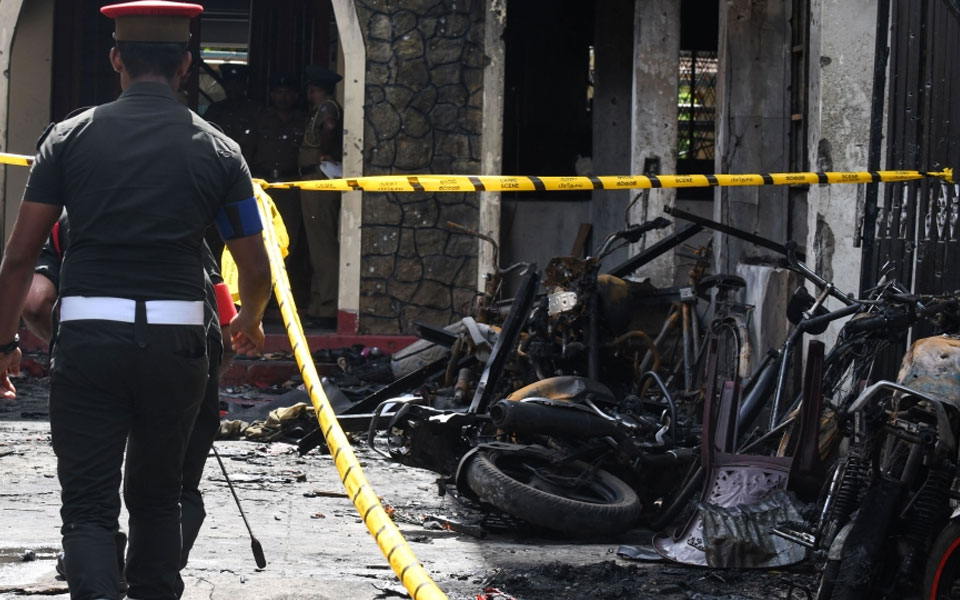Colombo: The Sri Lankan government has apologised for its failure to act despite receiving advance intelligence inputs about the possibility of terror attacks that rocked the island nation on Easter Sunday, killing 310 people.
A series of eight coordinated blasts ripped through three churches and three high-end hotels frequented by tourists and left 500 people injured in the country's deadliest violence since the devastating civil war ended in 2009.
Government spokesperson Rajitha Senaratne said that the warnings about the blasts were received in the days before the attacks, the CNN reported.
"We saw the warnings and we saw the details given," he said.
"We are very, very sorry, as a government we have to say -- we have to apologise to the families and the institutions about this incident," Senaratne, also the health minister, said.
All the families would be compensated and churches rebuilt, he said. The spokesperson said that one of the warnings referred to National Tawheed Jamath, or NTJ that defaced Buddhist statues in the past.
However, he did not believe that a local group could have acted alone. "There must be a wider international network behind it," he said.
Seven suicide bombers believed to be NTJ members carried out the series of blasts. However, no group has claimed responsibility for the attacks, but police have arrested 40 people in connection with the blasts.
In the wake of bombings, the military has been given a wider berth to detain and arrest suspects powers that were used during the civil war but withdrawn when it ended.
Prime Minister Ranil Wickremesinghe said he feared the massacre could unleash instability and pledged to "vest all necessary powers with the defense forces" to act against those responsible.
Let the Truth be known. If you read VB and like VB, please be a VB Supporter and Help us deliver the Truth to one and all.
Dubai: Smoke was seen rising from an area near the United States Consulate in Dubai, according to witness accounts cited by Reuters.
There was no immediate official confirmation on the extent of damage or whether there were any casualties in the incident.
Earlier, the US embassy in Riyadh, Saudi Arabia’s capital, was also attacked. Authorities reported damage to the premises, but no casualties were recorded.
The developments come amid heightened tensions in the region, with Iran continuing to target US interests in the Middle East following deadly attacks launched on Saturday by Israel and the United States.
Near US embassy in Dubai pic.twitter.com/z5VTZNVxNO
— Sahil Shah (@thesahilsshah) March 3, 2026





